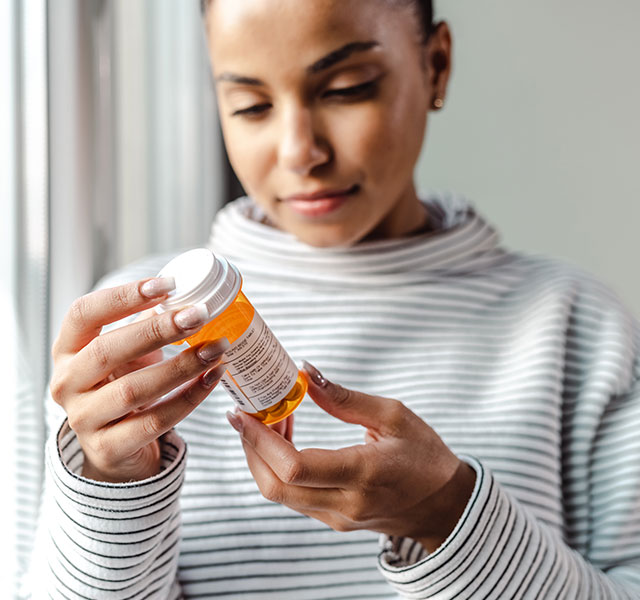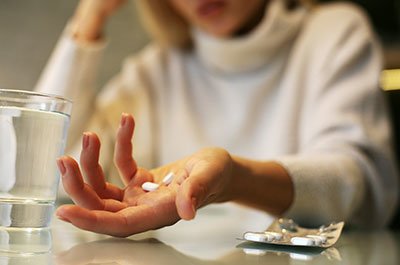Addiction is a chronic, progressive brain disease that impacts millions of Americans. Like other chronic conditions, an addiction to controlled or uncontrolled substances never quite goes away, even in a stable state of recovery. With other chronic conditions, there are medications you can take to help manage symptoms and maintain a more normal lifestyle. Fortunately, the same is true for some instances of addiction.
Medication for Addiction Treatment (MAT) or Medications for Opioid Use Disorder (MOUD) are terms used to describe the process of treating addiction through the use of medication.
Here, Tyler Trahan, M.D., an internal medicine and addiction specialist at Henry Ford Health, explains the concept behind MAT and how it can assist patients in their recovery.
How does MAT work?
Dr. Trahan: MAT involves taking medication to treat substance use disorders by helping to normalize chemicals in the brain, curbing the desire to use and preventing any discomfort from withdrawal.
When medications are prescribed, an addiction specialist will provide dosage instructions. In most cases, ongoing treatment with medication is recommended for at least six months to a year. Some patients only stay on medication for a brief period of time, while others are on it for much longer. Once someone is done taking medication, it is important to remain engaged in other aspects of addiction treatment to stay in recovery.

Meet With An Addiction Specialist
What types of addiction is MAT used for?
Dr. Trahan: MAT includes FDA-approved medications primarily for the treatment of alcohol and opioid use disorders. If you are struggling with other substances such as cocaine or cannabis use, there are some medication therapies available, they just aren’t approved by the FDA.
What are the medications used during MAT?
Dr. Trahan: There are many different medications that can be used to treat addiction. Common medications include buprenorphine (Suboxone) or methadone for opioid use disorder. Naltrexone and acamprosate are two of the most common for alcohol use disorder. The specific medication you are prescribed may depend on individual circumstances such as your specific addiction, how often you are able to take medications and your health history. You can find a list of MAT medications here.
How is MAT different from other addiction treatments?
Dr. Trahan: Treating addiction with medication has become one of the most important tools we can use to help patients enter recovery. More research has come out that shows addiction is a chronic disease of the brain that can be managed when the brain regains a chemical balance.
The success of addiction treatment isn’t based on medication alone, though. Patients are more likely to maintain sobriety when they are actively working to change their current lifestyle. In addition to taking medication, patients that also attend regular therapy appointments and community support groups (like AA, NA or SMART Recovery), are more likely to achieve and maintain sobriety.
Who is a good candidate for MAT?
Dr. Trahan: Anyone with a substance use disorder should consider medication to treat their condition. Patients should work with their doctor to discuss the pros and cons of each option and come up with an individualized treatment plan together.
What should you do if you are struggling with an addiction?
Dr. Trahan: If you are concerned about your use of substances, start by talking with your primary care physician. There are some primary care doctors that regularly treat substance use disorders and can provide additional resources. Alternatively, they can help point you in the direction of the care you need. An addiction specialist can help you further explore your options, help you decide between inpatient and outpatient programs, and connect you with specialized therapy and support groups. Our goal is to meet you where you are and help you get your life back.
Reviewed by Tyler Trahan, M.D., an internal medicine and addiction specialist who sees patients at Henry Ford Hospital - K Building and Henry Ford Maplegrove Center.



